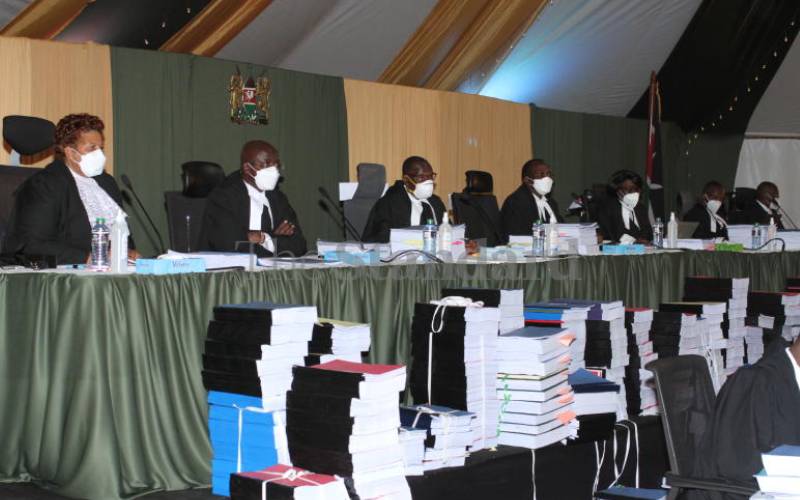×
The Standard e-Paper
Stay Informed, Even Offline

Court of Appeal judges, from left, Fatuma Sichale, Patrick Kiage, Roselyn Nambuye, Daniel Musinga, Hannah Okwengu, Kairu Gatembe and Francis Tuiyot during BBI appeal hearing. July 2, 2021. [Collins Kweyu, Standard]
It was a legal battle of the year when proponents of the Building Bridges Initiative (BBI) squared it out with those opposing amendments to the Constitution.